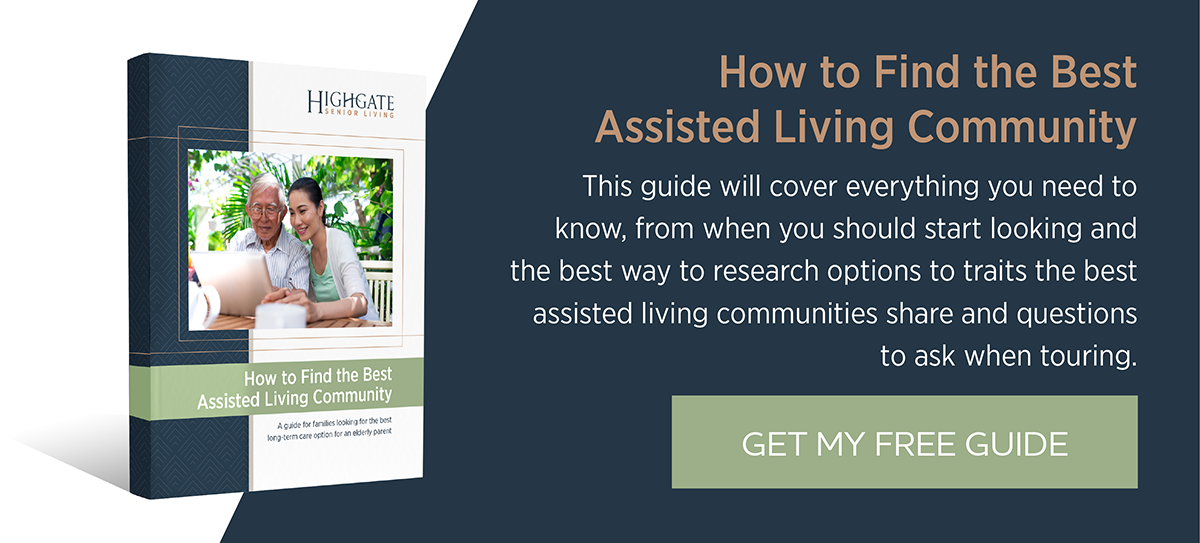
It’s a difficult conversation to have: telling a parent they are no longer safe living at home alone. In fact, it’s a conversation that most adult children admit avoiding as long as possible. So, when is the right time to begin the conversation? Here are five common reasons families begin the search for an assisted living community.
1. IsolationSometimes it’s unintentional. Your mom may have willingly given up her keys after a busy day in traffic left her overwhelmed by the amount of quick-wittedness needed to navigate traffic. And at first, maybe there was added effort from family and friends to ensure your mom’s social life stayed vibrant. But, as time goes on it’s not uncommon for social withdrawal to occur. Mom doesn’t want to bother you for a ride to the local restaurant where she used to play cards with her girlfriends. Dad doesn’t want to bother you for a ride to the doctor’s office, so he convinces himself that the dizzy spell he experienced the last several days was nothing. You also may have noticed the opposite: a significant increase in the number of times a day your parent calls you because they have become isolated. Regardless, isolation can have several negative impacts that can affect your loved one’s overall health and emotional well-being. If your parent has gradually become more isolated, it’s a good time to consider assisted living where they can experience the benefits of coordinated transportation, an organized recreational program, and the ability to make new friends.
2. Loss of Balance
In the US, falls are the leading cause of accidental death and the 7th leading cause of death in people age 65 and older. Most older adults won’t commit to staying active in the comfort of their own home. It’s hard to be motivated to exercise alone. But, given the opportunity in an assisted living community, chair exercises, walking programs or other various exercise opportunities can improve the balance and help ward off issues that can lead to a fall.
3. Fear of Living Alone
Does your mom seem to be more tired than usual? How many times did she leave her bed to check to see if the noise she heard was someone trying to break into the garage. Or perhaps it’s the fear of having to sleep alone in the same bed that once was shared with a significant other that leads to late night television watching in the recliner in the living room. An assisted living community offers 24-hour staffing and a safe environment where your loved one can call for assistance at any time.
4. Lack of Proper Nutrition
Proper nutrition can ward off illness, help maintain strength, and even has an impact on how we feel emotionally. Cooking for one is difficult. This can lead to an increase in snacking, consumption of processed food (like TV dinners), or an increase in sweet treats on days where your loved one may be feeling sad or depressed. Assisted living communities offer well-balanced meals and typically a wide variety of options when it comes to dining. Besides getting the proper nutrition your loved one needs to stay healthy, there are social benefits to enjoying a meal in the dining room rather than at a table at home alone.
5. Difficulty Managing the Home Alone
Maybe you’ve noticed the pile of bills stacked up in the corner unopened. Or, your need to find a repair man every time something breaks and mom or dad call you for help. Assisted living isn’t just for those who need help with activities of daily living (such as bathing, dressing, or managing medications), some older adults are choosing to move to assisted living as they age, yet while they are still fairly independent to eliminate the hassle of caring for a single-family home alone. Doing so also grants you access to a team of medical professionals who can help keep an eye on your aging parent’s health.






